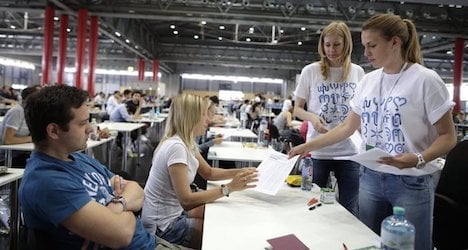According to a report in the Wiener Zeitung newspaper, Friday saw the sign-up of 12,600 students for the annual entrance exam to study medicine in Austria. Given that there are only 1560 places available, that means around a 12 percent chance of making the grade – or one in eight.
In Vienna, 6016 people are trying for 740 places, while Innsbruck is seeing 3478 applicants for only 400 places.
Graz has 360 places for 2765 applicants, and last is the new campus at Linz, which is offering 60 places to 342 candidates.
With the popularity of Austrian medical schools within the EU, quotas have been imposed that require 75 percent of the places to go to students with the Austrian 'Matura' certificate, while 20 percent are allocated to other EU countries (especially Germany), and the remaining five percent to non-EU countries.
The exam is identical across each of the four universities. The majority of candidates are women.



 Please whitelist us to continue reading.
Please whitelist us to continue reading.
Member comments